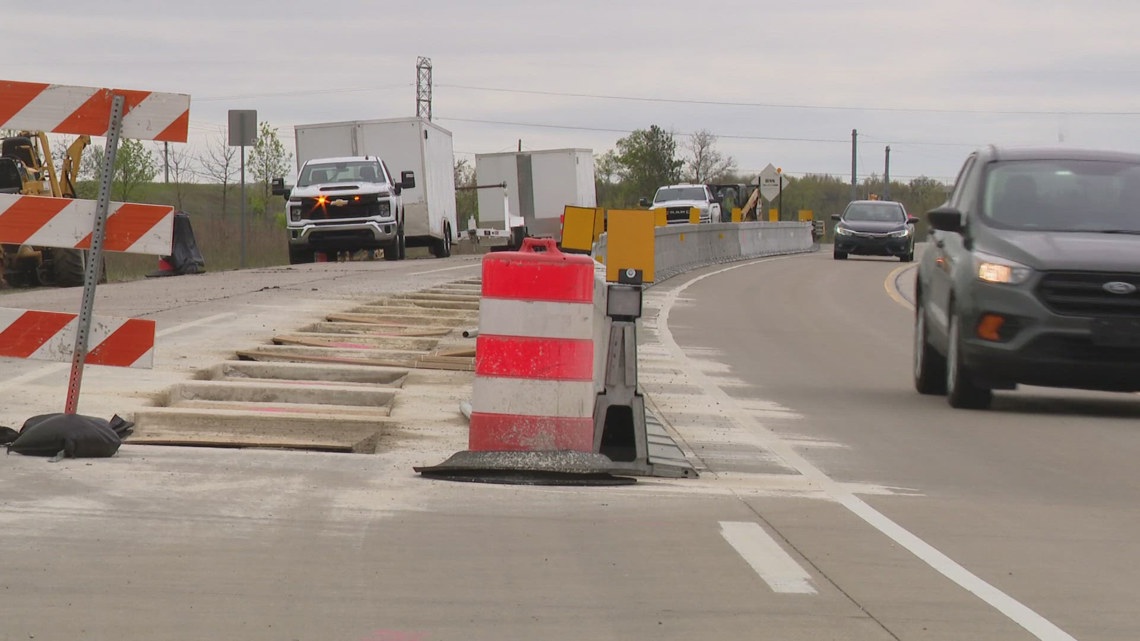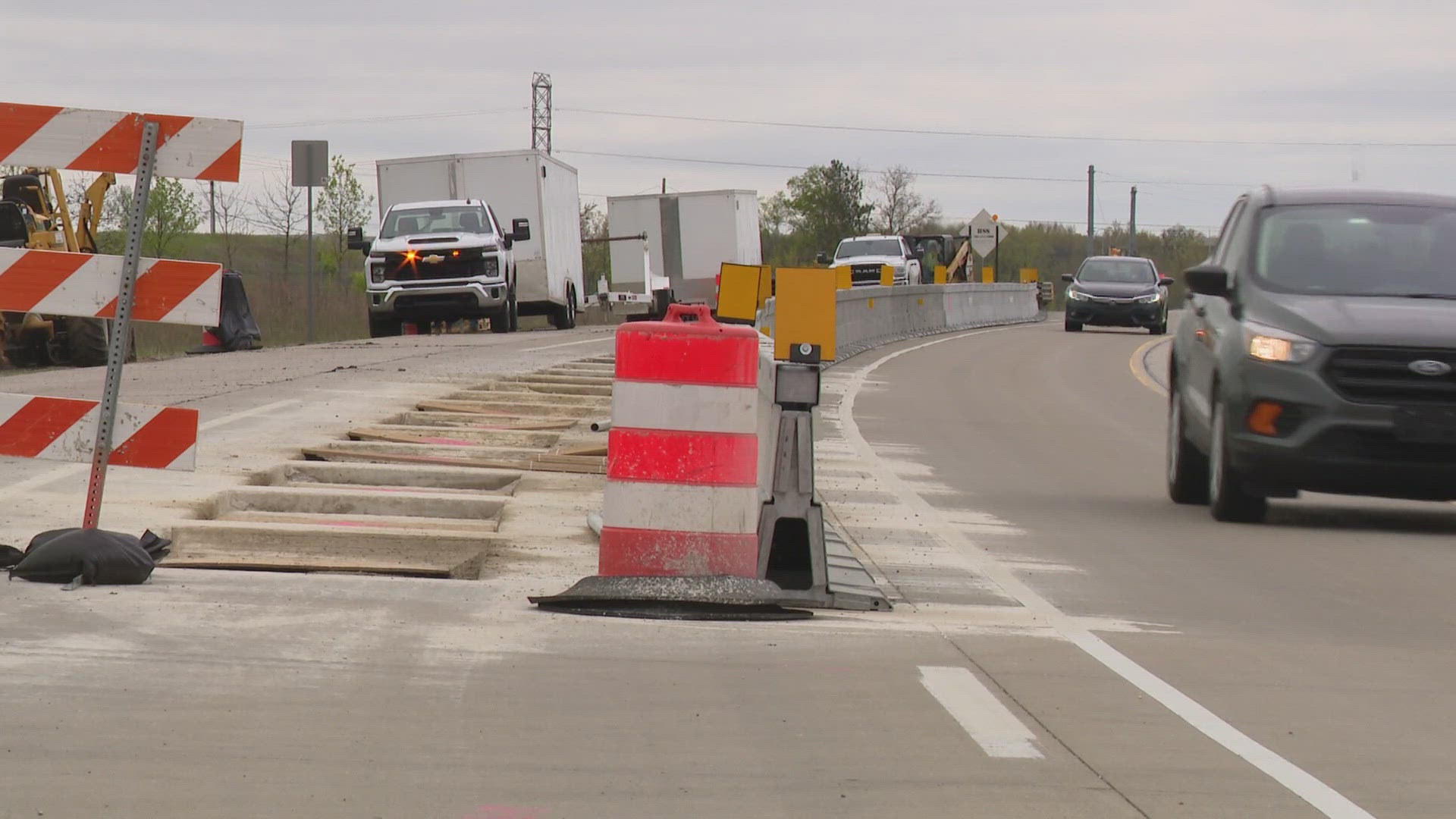WEST LAFAYETTE, Ind. — INDOT and Purdue University are partnering to build a first-of-its-kind highway that charges an electric car as it's driven.
It's part of a study Purdue has been doing for years.
Crews are working hard in West Lafayette, cutting into pavement along a stretch of U.S. 52, south of Cumberland Avenue.
"It's a quarter-mile stretch of test pilot road where we're going to test these results that us, Purdue University and Cummins Inc. have had successful results in the past," INDOT spokesperson Blake Dollier said.
Dollier said they're preparing to test the first-of-its-kind electric-charging highway.


"You could have a heavy-duty or passenger electric vehicle drive over U.S. 52 at highway speeds and get a wireless charge on that vehicle," Dollier said.
The process is similar to charging your phone on a wireless charging pad.
"It could be a chance to make electric vehicles as easy to use or even easier to use than internal combustion engines," Purdue professor of engineering John Haddock said.
Haddock is one of the Purdue engineers who works on the team that created the study a few years ago. So far, they've only done tests indoors at a nearby facility.


Now, they're prepping for the official outdoor tests, digging up slabs and making holes.
"The coils will actually get dropped into that, and then, the wires for the coil go down through the slab into subgrade down below. Every two slabs are wired in together and wired into generators," Haddock said.
Haddock said most of the testing will be done with electric semi-trucks.
"In order for it to pay for itself, you need to have the heavy trucks use it, and the trucking industry seems very interested in it," Haddock said.
Construction and prep work should be finished by next summer. That's when the study will begin.

